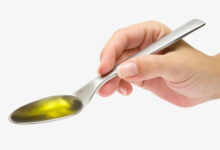- Description
- Slimming mechanism
- Indications and contraindications
- Regulations and forms
- Additional recommendations
- Side effects
- Rating
- Analogues
In the pursuit of a slender figure and weight loss, many people switch to dubious dietary supplements with poorly studied compositions. They may allow you to achieve a quick effect, but, as a rule, at the cost of your own health.
Indeed, it is not easy to find useful and safe drugs today, but it is a doable task. In particular, athletes love to use L-carnitine for weight loss and muscle building. This is a vitamin-like substance that is completely harmless and absolutely natural.
Description

L-carnitine is a substance, related to B vitamins, synthesized in the human body. It is present in the tissues of some muscles and the liver. It speeds up metabolic processes and maintains the activity of coenzyme A (it oxidizes fatty acids). It is used to treat kidney diseases.
With its deficiency, the body cannot process fats coming with food, which leads not only to obesity, but also to heart problems.
Preparations based on this substance are actively used in official medicine.
Advantages
Slimming with the help of L-carnitine is nothing but pluses with almost complete absence of shortcomings:
- activation of fat burning processes;
- possibility of using other supplements;
- slowing down of aging processes;
- protection of heart and blood vessels from cholesterol;
- facilitation of cardio- and power trainings;
- general strengthening and immunostimulating effect;
- absence of muscle pain after training;
- growth of dry muscle mass;
- reduction of fatigue – mental and physical.
Using dietary supplements with it, you yourself will notice that your trainings have become much more successful and effective. Endurance increases, and together with it you reach new heights – respectively, you lose much more calories.
Names. In different sources, L-carnitine can be found under different names: levocarnitinum, l-carnitine, vitamin Bt, levocarnitine, vitamin B11.
Slimming mechanism
L-carnitine can be safely used for weight loss, as its properties guarantee not only improvement of well-being and effectiveness of trainings, but also amazing external changes in figure.
It performs the following functions:
- protects muscle tissues from splitting;
- has a positive effect on the nervous system, which is very important for slimming (no irritation) and intensive sports (it raises your spirits, due to which trainings are held regularly, without breakdowns);
- transforms fats into energy, preventing their deposition on different parts of the body;
- prevents accumulation of lactic acid in muscles;
- prevents development of overtraining syndrome;
- reduces cholesterol;
- shortens recovery period after sports;
- keeps the level of coenzyme A in the body stable, which is very important for optimization of energy metabolism;
- promotes detoxification from cytotoxic organic acids and xenobiotics;
- increases endurance indicators;
- speeds up protein metabolism;
- is an anabolic, i.e. promotes growth of muscle mass.
So, it can be used in two directions: to increase effectiveness of power trainings, as an anabolic and to reduce weight, as a fat burner. But this way of fighting against extra kilos is not for lazy ones – there will be no result without trainings.
Origin of the name. The term “L-carnitine” comes from Latin “сarnis”, which is translated as “meat” – as there is quite a lot of it in this product.
Indications and contraindications
Preparations based on L-carnitine can be officially used by athletes. They are not prohibited by the Anti-Doping Commission, therefore many do not stop taking it even during competitions.
Therapeutic indications:
- infertility in men;
- hypoperfusion;
- discirculatory encephalopathy;
- skin diseases: seborrheic dermatitis, psoriasis, focal scleroderma, eczema, lupus erythematosus;
- growth retardation;
- intensive physical exercises – to reduce fatigue, increase efficiency and endurance, as an anabolic and adaptogen;
- myocardial infarction;
- ischemic heart disease, stroke;
- cerebral circulation disorders;
- Lebed-Pearson neuropathy;
- obesity;
- pathologies caused by carnitine deficiency: Marfan, Ehlers-Danlos and Beals syndromes, tuberous sclerosis, progressive muscular dystrophies;
- brain damage;
- post-infarction conditions;
- rehabilitation after operations and serious diseases;
- syndromes MERRE, MELAS, NARP, Kearns-Sayre;
- angina pectoris;
- thyrotoxicosis.
Indications for weight loss:
- rapid fatigue during physical exercises;
- pain sensations, convulsions after trainings;
- tremor of limbs, strongly strained muscles;
- lack of results during sports, despite their intensity;
- visceral fat on the abdomen;
- shortness of breath, weakness, dizziness, frequent heart rate during trainings.
Contraindications:
- allergy;
- pregnancy;
- insomnia;
- pain in epigastrium;
- HIV;
- hypertension;
- hypersensitivity;
- dyspepsia;
- thyroid diseases;
- lactation;
- oncology;
- kidney pathologies;
- diabetes mellitus;
- heart failure;
- trimethylaminuria;
- epilepsy.
This substance cannot negatively affect functioning of organs. But it launches processes that make the body systems work in a more intensive mode. And if initially not everything is OK with health, it simply may not cope with it. Therefore, be sure to take this list into account.
From history. In the USSR, DL-carnitine chloride was used to treat diseases of the nervous system, although no data on the benefits of this product for the central nervous system were provided.
Regulations and forms
It is very important to know how to take L-carnitine to get maximum benefits from it. Methods and dosages are determined by various factors. The leading role is played by the chosen preparation and individual factors.
Different dietary supplements



